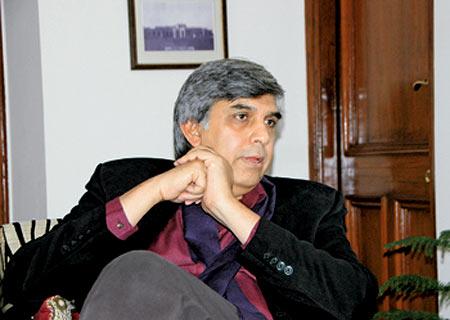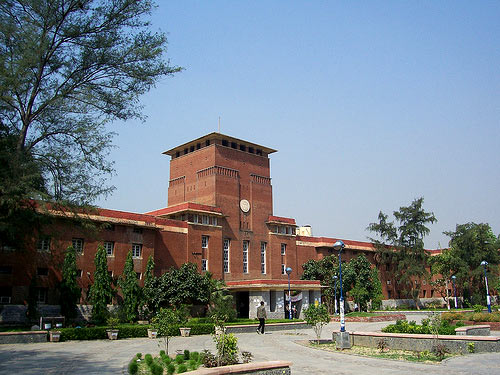
Dinesh Singh, vice chancellor, Delhi University feels that Indian universities must redefine themselves. We must not become irrelevant. Knowledge must connect with the needs of the society. Read on...
A dynamic leader, Prof Dinesh Singh, Vice Chancellor of Delhi University who reaches out to over five lakh students through 70+ affiliated colleges in Delhi wishes universities in India to re-define themselves.
He says, "If we don't then we will increasingly become irrelevant. Knowledge must connect with the needs of the society."
Prof Singh, a Mathematical genius relates the subject to creative knowledge base.
In this interview, he explains the logic behind starting the four-year undergraduate programme and how he plans to inspire and encourage India's youth to succeed. Excerpts:
How will you compare yourself with giants like JNU, IIT-Delhi?
Despite all the shortcomings, if Delhi University can do well then that means it is unique. We attract most of the best undergraduates in any institution in India, if possible in the world.
Each year 70,000 undergraduates take admission into my university. I get large numbers of national clientele from Kerala, Tamil Nadu, Assam, Kashmir and Gujarat.
After your arrival DU is now following the semester system. Any immediate changes?
I feel students are far more focused. The saving grace of semester system is that students have to study less as the study length has got reduced.
Now this has helped students to focus on a particular discipline with greater depth. Otherwise when you had this just annual papers, you didn't know where to focus.
How can you judge a student based only on a three-hour exam? In the semester system there is a constant teacher-student engagement.
You are replacing existing three-year undergraduate programmes to four-year from this year. Will this huge change add value?
Absolutely. It will redefine curriculum and teaching methodology. Students will get more time to invest on projects, innovation and research.
They will get ample space to think what they actually want to do. Theories will be more exciting and students will be given credit points for different papers along with co-curricular activities.
Please click NEXT to continue reading...

What makes DU's Cluster Innovation Centre so talked about?
We have constantly tried to re-invent ourselves. So our innovation centre is like our step in that direction.
The dynamic programmes like BTech/ BS (Innovation with Mathematics & IT), BTech Humanities, Master of Mathematics Education will discover inter and trans-disciplinarity among each other.
The centre gives a unique platform for interface of Humanities, and Mathematics with technology. It connects with innovation in the real world.
Be it industrial clusters, slum clusters and educational clusters -- our centre seeks innovations in these clusters to bring them into our system. And collectively that process will enhance the curriculum where learning is closely connected.
Students will get to design their own courses under guidance. Gradually, this drive will significantly move us out of the blackboard model.
What is your take on the need of the hour to meet standards in higher education system?
Universities in India must redefine themselves. If we don't then we will increasingly become irrelevant.
Knowledge must connect with the needs of the society. Academics cannot be divested from its connections with society.
A university must drive change and improvement in society. It is one of the important reasons why universities exist. Knowledge must be put into action. It cannot be knowledge for the sake of knowledge only.
Where do you think DU has to focus its attention?
We have to strengthen our undergraduate programmes and build our graduate programmes on that model. We are earnestly working towards that goal.
And our School of Open Learning must be more technology-friendly. It should use technology to really make students utilise all academic opportunities available to them.
So what is your vision for DU?
I just want to help the youth of India to find their inner calling. You must figure out who you are.
What is inside you? And learn to do what they should do in the society. Now that is what education is all about. And the rest is secondary. If we can do that with a student then we are successful.
You have done some splendid work in Maths. Most students get baffled by Maths. How do you see Mathematical creativity as different from other kinds of creativity?
I feel girls are doing pretty well in Maths. In most universities, girls outnumber boys. In our Master's programme -- out of 400 seats, there are about 350 girls and only 50 boys. So the number proves.
Yes, you can link Mathematics with creativity. You do both inductive and deductive reasoning. So induction process allows you to infer, guess through some happenings in the real world or other abstractions. And you begin to see there might be something.
And that does not come from logic and it just begins to gel inside you. You may take it forward and you will get stuck within it.
Here the subconscious will start putting things together. If you are lucky, it will click.